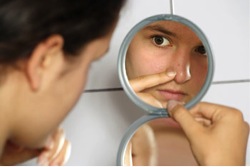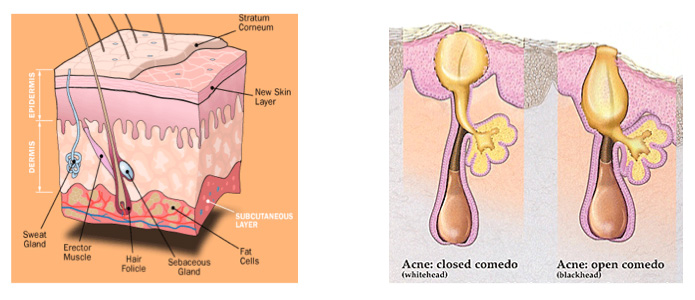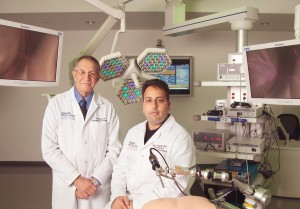- Should You Take Accutane? - October 26, 2012

More than 80% of teens today suffer from acne and they all wonder the same thing: How can I get rid of it? As a matter of fact, products targeted towards acne are estimated to generate 3.02 billion dollars globally.
Depending on the severity of the acne, there are many ways to treat it, without permanently damaging the skin. For severe acne, one common form of treatment would be to take Accutane (Isotretinoin). As common as it is, though, there are a lot of misconceptions about Accutane.
What causes acne?
Acne is an eruption caused by the blockage and inflammation of the pilosebaceous (hair-oil) apparatus of the skin. Hormonal and genetic factors further worsen the blockage and the inflammation of the skin.

What is Accutane?
Accutane is a form of Vitamin A that reduces the amount of oil released by the oil glands in your skin. It is used to treat severe nodular acne and usually used after other medications have failed or have not given successful results.
What is nodular acne?
Nodular acne is a severe form of acne vulgaris, classified as grade III inflammatory acne. It develops from the progression of milder forms of inflamed acne lesions, when they rupture far beneath the epidermal layer. This deep eruption results in pus being expelled into the dermis (deeper skin layer). This type of acne is more difficult to eradicate and more likely to produce scarring.
How is the medication given/used?
Accutane is ingested in the form of a capsule by mouth. Depending on the patient, it is usually taken twice a day with meals. It should be taken with a glass of water and over time the dosage may increase depending on how the patient responds to the drug.
If Accutane is the option used when other drugs fail, then why doesn’t everyone take it to treat their acne?
Unfortunately, Accutane does not cure everyone. Statistics show that Accutane only resolves acne in about half of those who take the medication. Surprisingly, 20% of patients who take it get a little worse, and a small percentage get much worse. In addition, Accutane has many side effects that have resulted in it being taken off the market in 2009 and black labeled by the FDA.
What are the side effects of Accutane?
Accutane has minor side effects such as:
- Chapped lips
- Redness or swelling of the gums.
- Headache
- Thinning of skin
However, there are also severe side effects of Accutane that should be considered before taking the medication. These include:
- Severe allergic reactions
- Bizarre, aggressive, or violent behavior
- Fractured or weak bones
- Increased pressure on the brain
Also, pregnant women and those considering getting pregnant should NOT take Accutane. Accutane can result in loss of pregnancy, premature birth, the death of the baby right after birth, or a baby born with birth defects.
Is it still off the market?
Accutane has returned to the market recently. However to be able to take Accutane, a patient must take a blood test and (if a woman) must be on birth control. This helps to avoid the most severe side effects.
In summary, acne is caused by the blockage or inflammation of the pores in the skin. One way to treat acne would be to take Accutane. However, Accutane should not be the first option due to its severe side effects and controversial medical history. Before trying Accutane, the patient may try conservative treatments, including:
- Chemical peels
- Over the counter topical treatments
- Face wash
- Oral Contraceptives
- Antibiotics
These can be undertaken after consultation with a physician skilled in the treatment of acne and other skin disorders.
Read patient stories about Dr. Hootan Zandifar from the Skin Center, at the internationally renowned Osborne Head & Neck Institute.
To learn more about Dr. Zandifar and other facial plastics procedures offered at the internationally renowned Osborne Head and Neck Institute visit our website at: www.ohniskin.com




